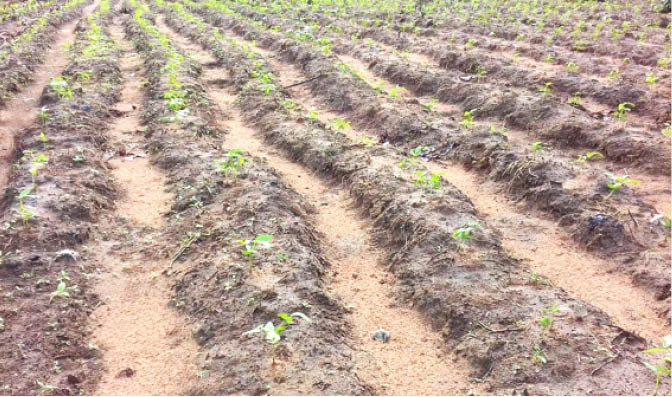BUK, ICRISTA, IITA hold conference to address conflicts in dryland areas
The Centre for Dryland Agriculture (CDA), Bayero University, Kano in collaboration with other key partners such as the International Crops Research Institute for Semi-arid Tropics and the International Institute of Tropical Agriculture has concluded plans to hold the 3rd biennial conference to brainstorm on possible ways to addressing the effects of climate change and emerging […]

FILE PHOTO: A cowpea farm at the University of Agriculture in Makurdi
The Centre for Dryland Agriculture (CDA), Bayero University, Kano in collaboration with other key partners such as the International Crops Research Institute for Semi-arid Tropics and the International Institute of Tropical Agriculture has concluded plans to hold the 3rd biennial conference to brainstorm on possible ways to addressing the effects of climate change and emerging conflicts in west African dryland areas.
Among the areas to focus on for deliberation during the conference is the ongoing farmer/herder clashes in some parts of the country.
The conference with a theme “Resource control, conflicts and changing climate in the drylands: options for attaining SDGs” is slated for 24th to 27th September, 2018 with about 70 researched papers billed for presentation.
Addressing journalist in Kano, the Director, CDA, Professor Jibrin Mohammed Jibrin, attributed the incessant cases of farmer/harder conflicts in some parts of the country to the effects climate change which according to him has force the warring groups to exert undue pressure on the limited land resources in an unhealthy form of competition.
He described the conference as timely, saying it presents an avenue for sharing of ideas towards addressing myriad of issues bedeviling dryland areas which he said has pose danger to food security and consequently the United Nations’ sustainable development goals (SDGs) in the regions.
“We have a lot of things that affect the growth of dry land areas which in most cases are related to constraints and pressure on natural resources.
“Most of the population in dry land live and get their livelihood by tapping on the natural resources through agriculture, herding and so on, and with the population increase we are experiencing a lot of pressure that is leading to so many conflicts.
“One of the recent conflicts that is of interest to everyone is the problem between herders and farmers. These are things that cannot be solved in the perspective of security agencies, it has to be from application of knowledge, from understanding the root causes before we could find a solution that will be long lasting.
“So we are hoping that this kind of conference will provide opportunity for exchange of ideas that will lead to policy which will solve many of the problems affecting dryland areas” he added.
The conference will bring together critical stakeholders across the agricultural value chain to examine how the SDGs could be attained in the dryland areas in the face of resource scarcity, climate change and the emerging conflicts.
